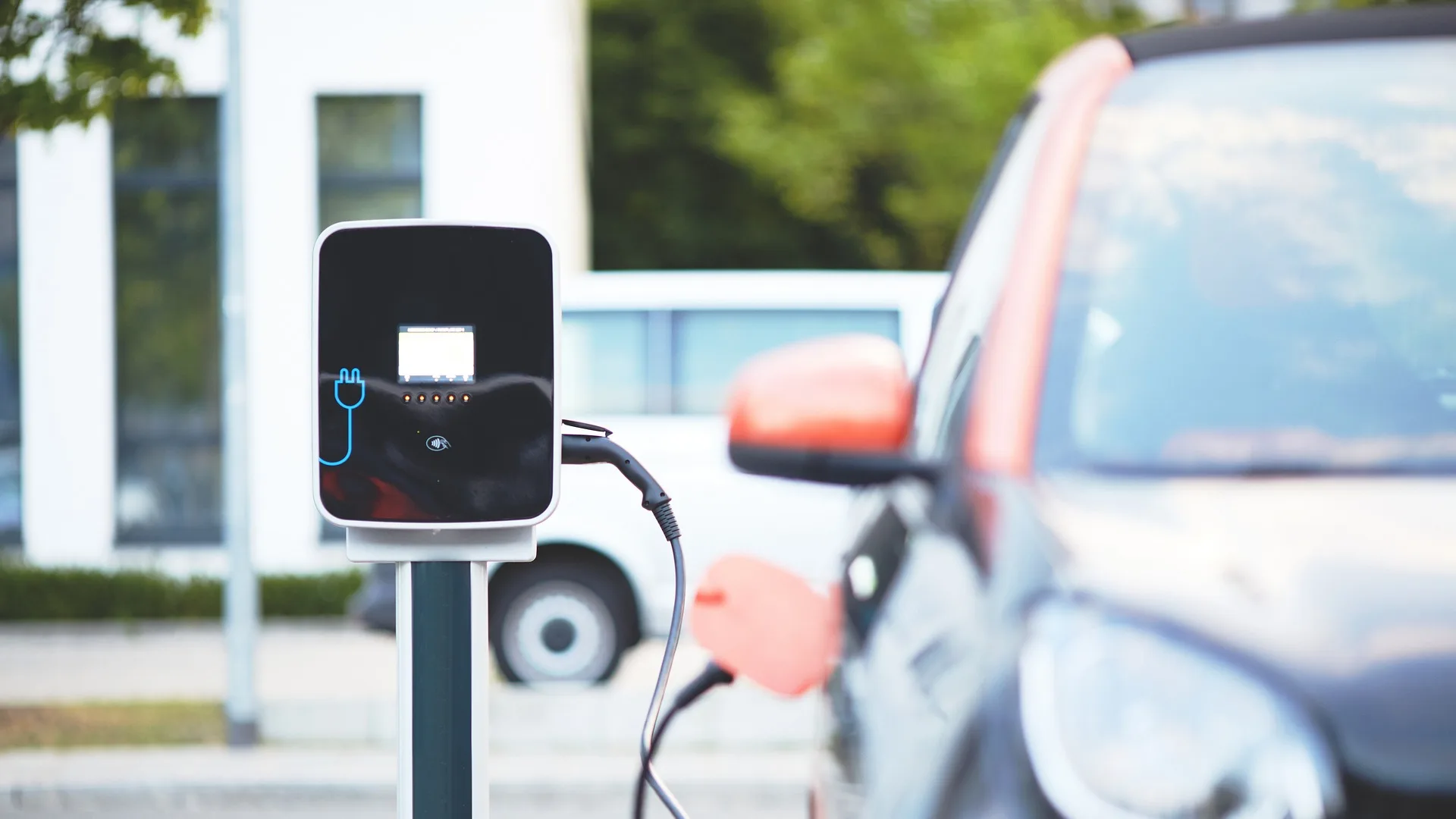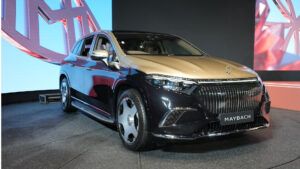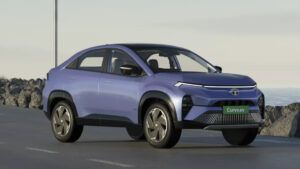Do you know that the automakers in the Indian EV market are slashing prices to attract more customers? Despite the reduced running cost, electric cars represent just 2% of car sales in India. That’s basically due to their higher price tags.
However, according to a survey by LocalCircles, only 5% of prospective car buyers in the country will likely purchase EVs this year.
The survey, conducted over three months, collected data from 40,000 individuals across 319 districts. 42% of participants resided in tier-1 cities, 34% in tier-2 cities, and the remaining 24% lived in tier-3 cities, rural areas, or tier-4 regions.
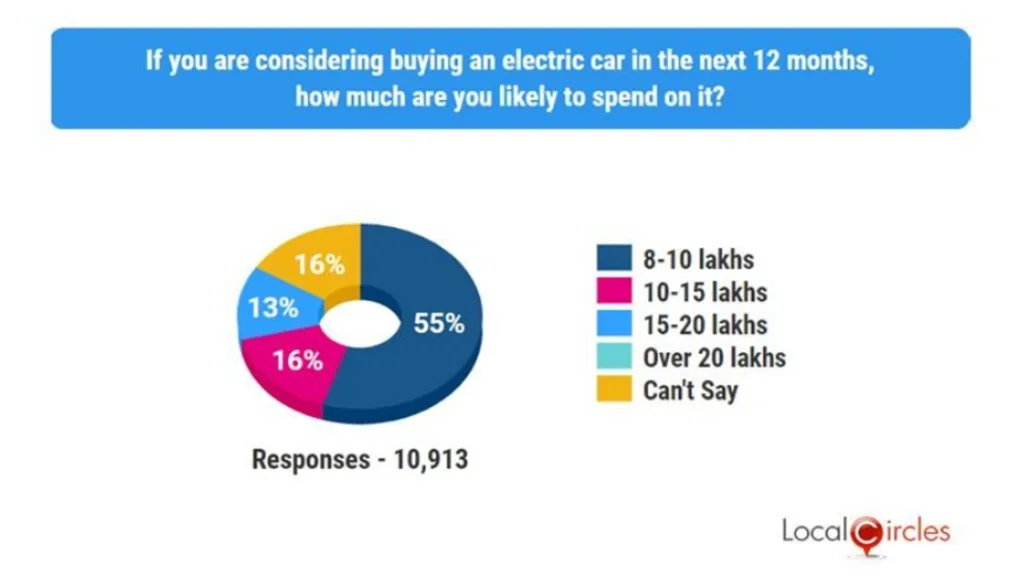
Insights from the Survey
The survey revealed that more than half of the existing or potential car owners would consider purchasing an EV within the Rs 8-10 lakh price bracket.
Also, the survey reports that car sales in India exceeded 4 million units last year, with 72,321 EVs registered. Assuming that 5% of current or potential car owners buy a single car each and annual car sales remain at 2023 levels, the demand for EVs this year could reach 200,000 units, LocalCircle said.
About 21% of the respondents expressed concerns about the insufficient availability of EV charging stations in their area. Meanwhile, 12% of respondents had relatively low interest in EVs due to a lack of knowledge about the vehicles.
Approximately 7% of respondents noted that there were insufficient model options available within their budget range. On the other hand, 21% felt that EVs are costlier than traditional ICE vehicles.
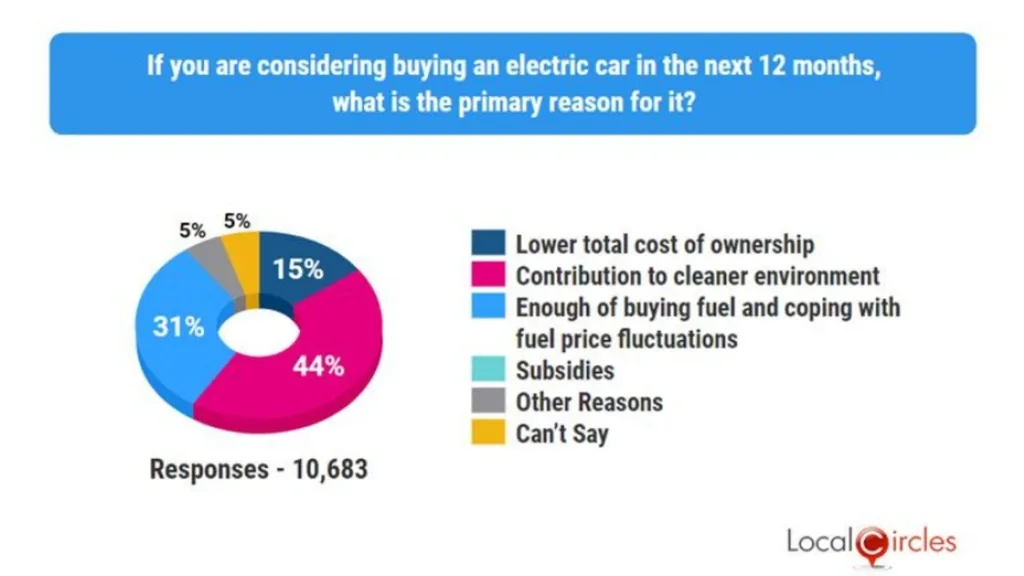
Experts Opinion
The “2023 Global Automotive Consumer Study” conducted by Deloitte highlighted that the demand for EVs revolves around consumer perceptions.
According to experts, people consider buying EVs primarily for the driving experience. With no engine sound and minimal NVH (noise, vibrations, and harshness), EVs offer a quiet and comfortable cabin environment.
Also, auto experts highlight that the running costs of electric cars are considerably lower than those of their ICE counterparts. However, it would take an average daily commute of 46km, spanning six years, to offset the difference in purchase cost.
Typically, an average commuter covers a daily distance of less than 46km, totalling around 16,790 km per year. Therefore, the offset period might extend beyond six years. It provides insight into why consumers may be hesitant to switch to EVs.
Conclusion
Recently, the Indian government approved a new EV policy to attract foreign investment from companies such as Tesla. It aims to offer tax incentives to boost local production and position the country as a global export hub.
The strategy involves reducing import tariffs on specific EVs for companies looking to invest more than $500 million and setting up manufacturing plants within three years. With the latest government initiative, we hope to see a rise in the domestic EV market.

